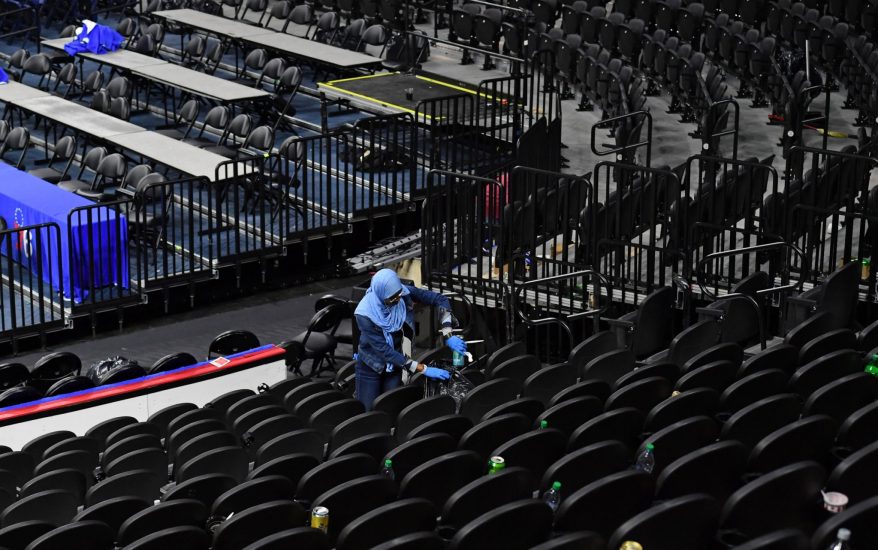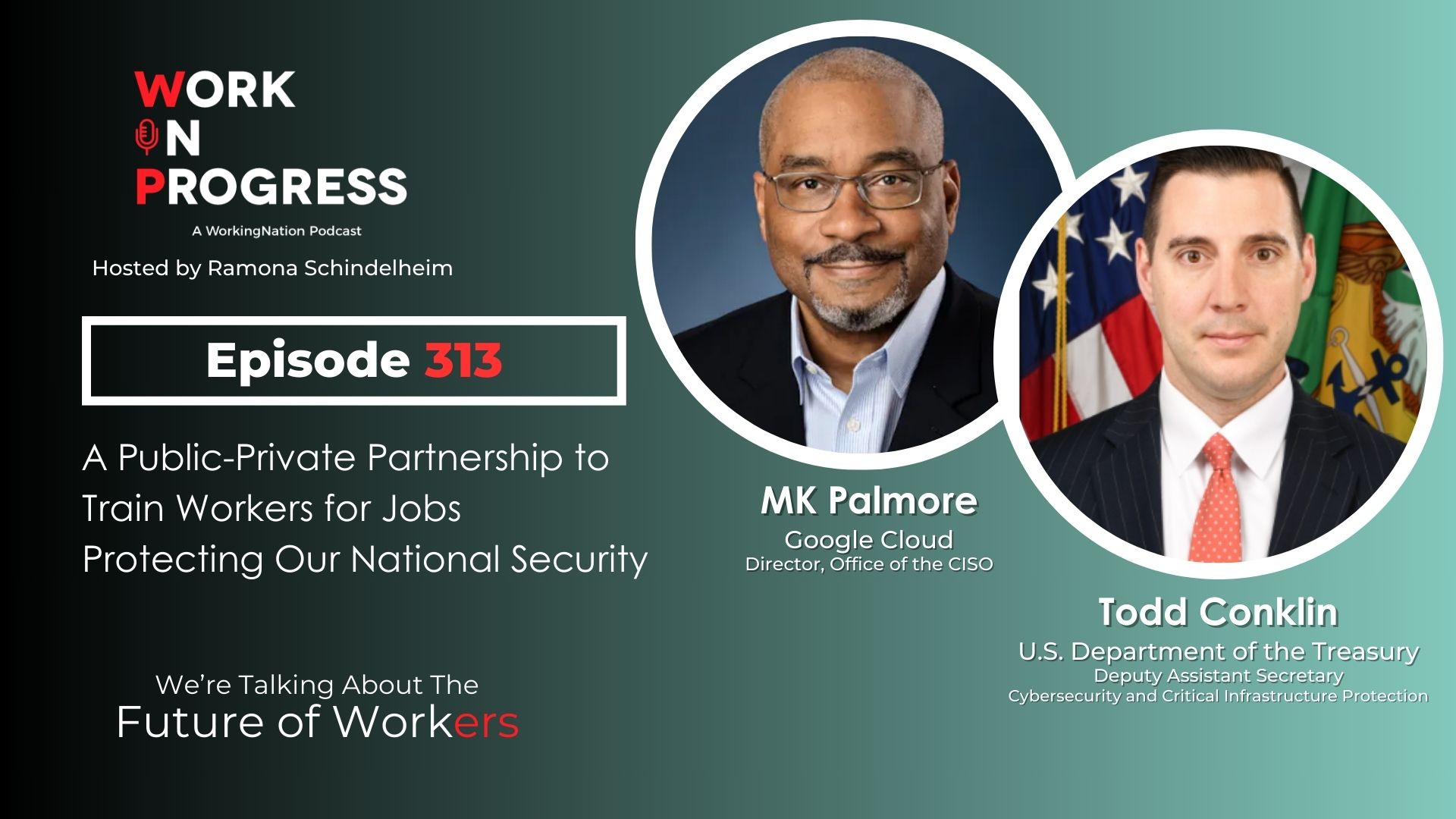The fast-moving spread of the coronavirus is having far-reaching effects, including the cancellations and postponements of major sporting and entertainment events. This week the NBA suspended the rest of the current season—the remaining 257 games—after a Utah Jazz player tested positive for the virus. Since the decision on Wednesday to suspend the season, a second Utah player has tested positive. Now a player for the Detroit Pistons has also tested positive for COVID-19—bringing the number of affected players to three.
The NBA is Big Business
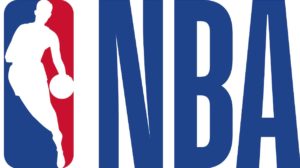
Last season, the NBA made about $8 billion from a variety of revenue streams, including television rights, merchandising, ticket sales, and more.
Founded in 1946—well after its counterparts of major league baseball and professional football—the NBA over time has created innovative ways to monetize fans’ interest. Its All-Star game is a three-day weekend event and the league was the first to market popular players as world-recognized superstars.
The Chain Reaction
When discussing earnings in the billions of dollars, it should not be forgotten that those affected by the suspension go well beyond the players. They include NBA corporate employees, workers affiliated with media and advertising, sponsorships, as well as merchandising and ticket sales—just to name a few.
There are nearly 12,000 full time employees and more than 385,000 part-time workers with jobs that are impacted by the cancellation.
The part-time arena employees are among the hardest hit. Hundreds of arena staff are in attendance, performing their job duties at every home game. There are parking attendants, security personnel, concession stand workers, souvenir vendors, custodians, and ushers, most of whom are hourly workers.
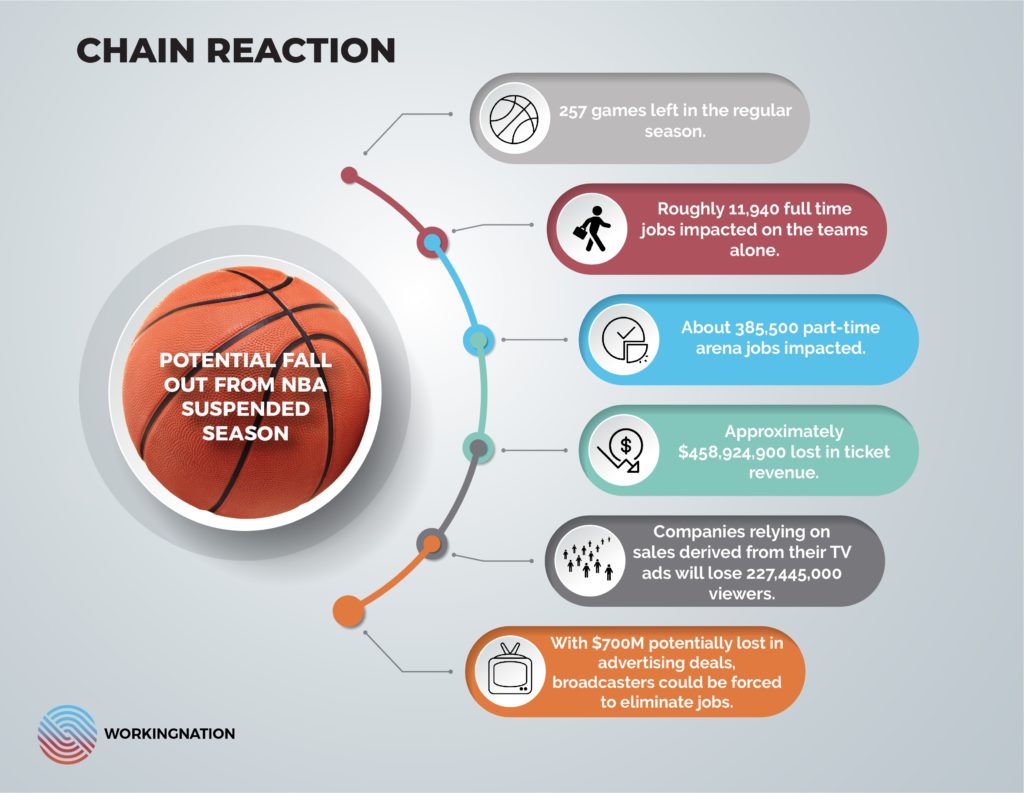
Help from the Teams and from the Players
With no certainty about how long the suspension will last, some NBA teams are strategizing how to help their part-time workers during the shutdown.
The Philadelphia 76ers issued a statement, “As we navigate the coming weeks, we recognize that our staff members are family and the heartbeat of the organization. As such, we are committed to assisting our arena associates through this period.”
Players are stepping in to pledge their help and their money. The list is growing by the minute.
Rudy Gobert—the Jazz player who first tested positive for COVID-19—is donating $500 thousand to relief efforts. The funds will go toward helping the workers at Vivint Smart Home Arena in Salt Lake City, as well as coronavirus-related social services in Utah, Oklahoma City and the French healthcare system.
Giannis Antetokounmpo of the Milwaukee Bucks who is pledging $100 thousand to support arena staff. Says Antetokounmpo, “It’s bigger than basketball! And during this tough time I want to help the people that make my life, my family’s lives, and my teammates lives easier.”
Charlotte Hornets player Cody Zeller says he’s confident the league will take care of hourly employees. But Zeller says he will pay workers out of his own pocket if there is no firm plan in place.
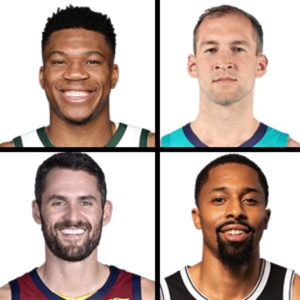
Zeller’s comments follow an Instagram post from Cleveland Cavaliers forward Kevin Love who donated $100 thousand to help his team’s arena workers and support staff.
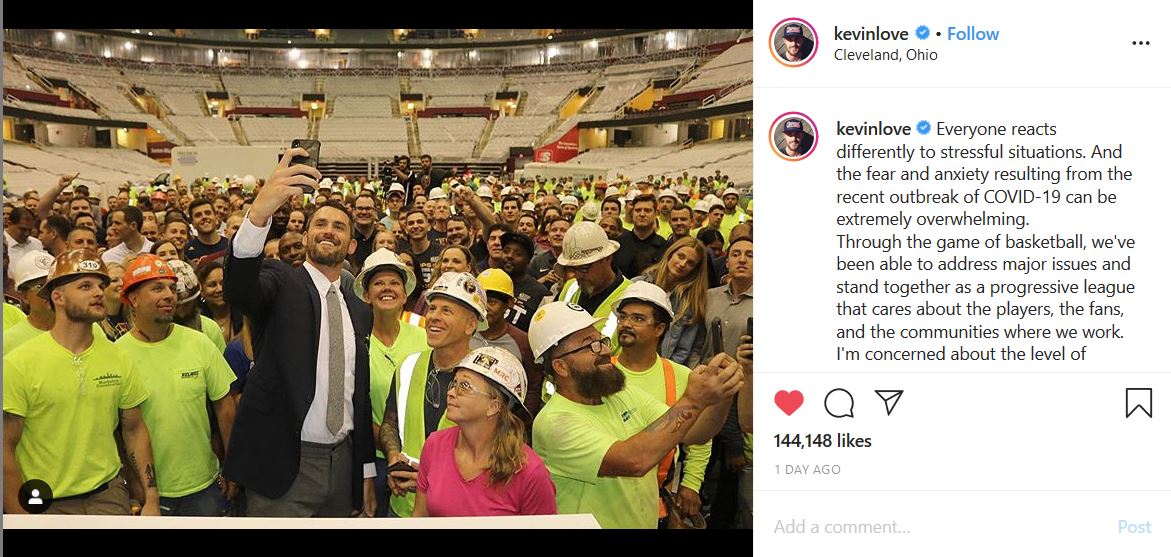
Following Love’s lead, the Cavaliers say they will develop “a compensation plan to continue paying our event staff and hourly workforce that is impacted with the changes to our regular event schedule.”
Brooklyn Nets guard Spencer Dinwiddie tweeted about helping arena staff and owner Joe Tsai says the organization is working on a plan for those employees.
And you can add Zion Williamson of the New Orleans Pelicans to the list. The rookie has announced on Instagram he will cover the salary of workers at the Smoothie King Center for a month.
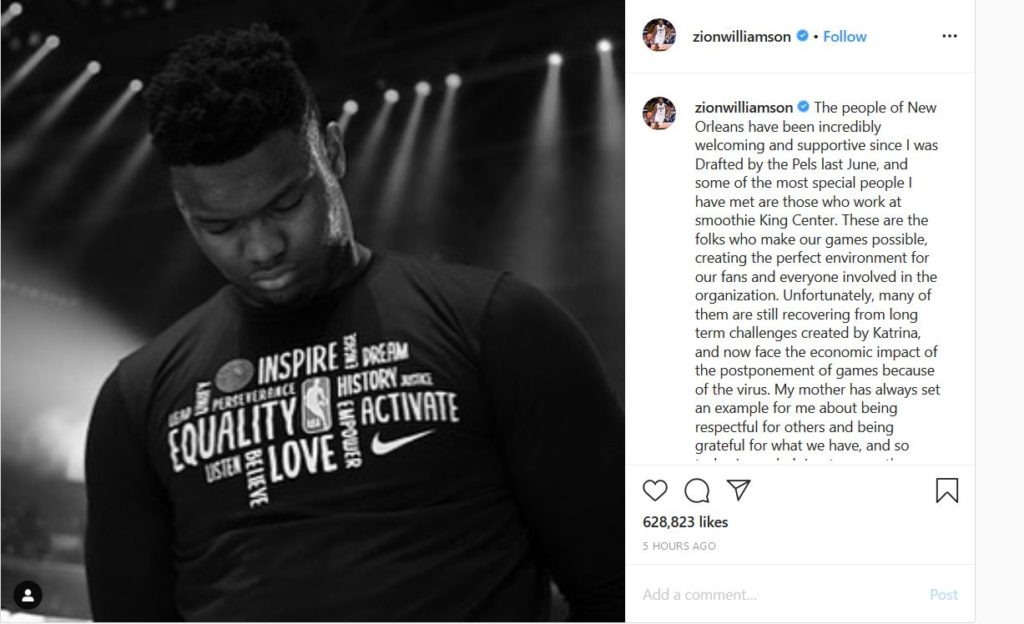
Says Golden State Warriors General Manager Bob Myers, “We feel for the workers mostly, the low-income wage earners that count on working our games. If you’re going to have empathy, have it for them, not for us. We play basketball. It’s a big business, but we’re just playing basketball.”
The Dallas Mavericks are planning on paying their part-time employees for the next four games that would have been played in their arena. Team owner Mark Cuban says, “I reached out to the folks at the arena and our folks at the Mavs to find out what it would cost to support, financially support, people who aren’t going to be able to come to work. They get paid by the hour and this was their source of income. We may ask them to go do some volunteer work in exchange, but we’ve already started the process of having a program in place.”
Atlanta Hawks owner Tony Ressler is also implementing a plan to support arena employees. Says Ressler, “We are indeed and feel strongly it’s both the right thing to do and good business.”
The microcosm of the NBA illustrates an indirect threat the world faces amidst a crisis like COVID-19. Public closures threaten the financial stability of even healthy employees when they are unable to go to work.

